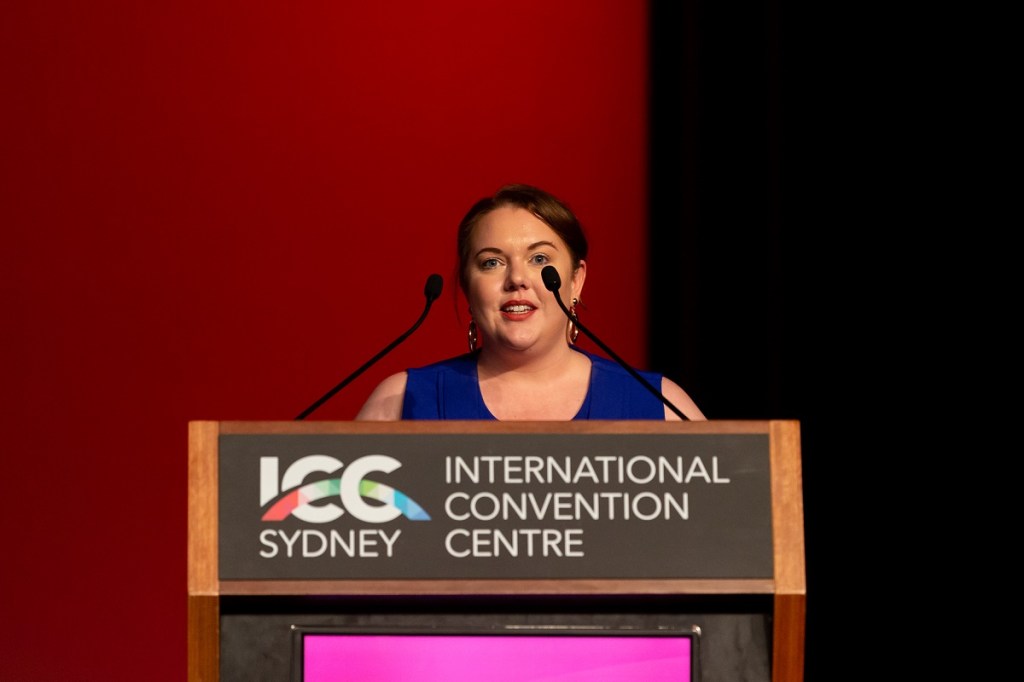A campaign addressing the importance of mental health amongst retail workers is set be rolled out in the third quarter of this year.
The importance of recognising and addressing mental health issues within the petrol and convenience (P&C) channel was raised by Rebecca Goulter, Director of Marketing and Events at the National Retail Association (NRA), at the AACS Connect 22 conference.
Goulter spoke about how the industry can work together to combat the effects of mental health on retail staff and said that the NRA, in association with AACS, will roll out a campaign humanising retail staff.
Goulter said that while customer abuse is not solely responsible for mental health issues, it is certainly a contributing factor.
“Our frontline workers have experienced a full 100 per cent increase in customer abuse throughout the pandemic. And they’ve had to shoulder the burden of having to be at work and provide the service to customers who are being abusive.
“This isn’t new, this has been happening before the pandemic. Our 1.5 million strong workforce was already facing abuse. The SDA did a research report and published some shocking data a few years ago that 85 per cent of our employees reported verbal abuse from a customer in the past, 14.5 per cent reported physical violence from customers and on top of all that, 12 per cent said the instances of customer abuse or violence was sexual in nature.”
AACS CEO Theo Foukkare said they are proud to partner with the NRA and SDA for the upcoming campaign that will be designed to help the industry’s frontline staff of which there are more than 74,000 nationally.
He also said the soon to be released AACS Training Programs combined with the new AACS Workplace Relations Advisory Hotline will be very valuable tools for AACS’ Retail members to utilise helping their staff manage these situations.
In the meantime, Goulter discussed how managers can help build resilience and psychological safety amongst workers.
“Resilience isn’t about toughing it out, being unemotional, or going it alone. Resilient people still feel emotions associated with the negative experience, but they don’t let it sit there. They live in it for a second and then let it pass. We can all learn to improve our resilience.
“And psychological safety is how we create an environment where our staff can speak out, share ideas, ask questions and make mistakes without fear of humiliation or retribution.”
First and foremost, Gouter said it is important to remove the stigma surrounding discussion about mental health in the workplace, and that it is up to the leaders in the workplace to normalise this.
“Leaders who set benchmarks for mental health as part of annual strategic planning and budgeting, who identify someone who can spearhead the rollout of these mental health action plans are leaders who show their commitment to a mentally healthy workplace.”
Goulter also touched on the financial implications of not addressing mental health in the workplace.
“Poor mental health costs Australian businesses $10.9 billion each year in absenteeism, reduced productivity, and compensation claims. Mental health conditions result in about 12 million days of reduced productivity for businesses annually. On average, someone with untreated depression will need an additional three or four days of sick leave per year.”
Resources are available for those seeking help for either themselves or staff through AACS and NRA, as well as offering services providing training for management teams.
“We can tell you how to performance manage someone who’s going through a hard time, and you want to give them the chance to get better, and how to appropriately and empathetically guide your employees through these mental health conversations.”

